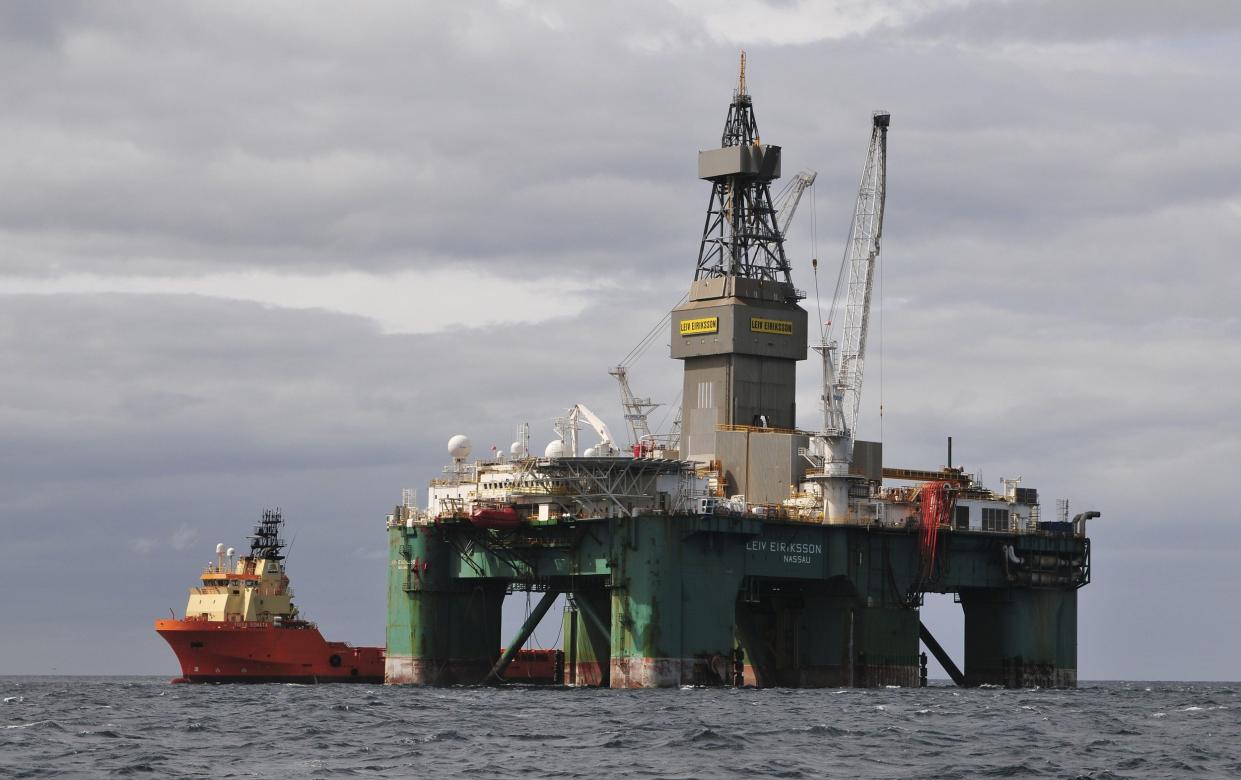Falkland Islands eyes economic boom in talks to exploit huge oil field

The Falkland Islands has opened the door to oil exploration in its waters for the first time in history, in a move that could trigger an economic boom for locals.
The territory’s ruling council has asked islanders if they will back the scheme to extract up to 500m barrels of oil from the Sea Lion field, 150 miles to the north.
Navitas Petroleum, an Israeli company, has bought up most of the rights to the field, meaning most of the profits would go to its shareholders in Israel and the US.
However, the islanders could benefit from millions of pounds in royalties and taxes levied on the profits, potentially transforming the islands’ entire economy, which currently depends on sheep farming and fishing.
The field is thought to contain 1.7bn barrels of oil, making it several times bigger than Rosebank, the largest development planned for the UK’s own North Sea, estimated to hold 300m barrels.
The plans could, however, be politically embarrassing for the UK. The amount of oil produced would blow a huge hole in the UK’s pledges on cutting emissions.
Labour, which is likely to form the next government based on current polling, has made accelerating the net zero transition a key part of its pitch to the electorate. Sir Keir Starmer’s party has promised to ban all new oil and gas exploration in British waters.
This ban would not affect the Falklands, as it is the local administration there who have a say over drilling rights to surrounding waters.
Details of the scheme were released without fanfare in the Falkland Islands Gazette, an official government publication, signed off by Dr Andrea Clausen, director of natural resources for the Falkland Islands government.
“A statutory period of consultation will run from June 24, 2024 to August 5, 2024… regarding Navitas’ proposals for the drilling of oil wells and offshore production from the Sea Lion field,” it said.
An environmental impact assessment released at the same time by Navitas said development of Sea Lion would involve drilling in 1,500 feet of water in the South Atlantic – renowned as some of the world’s wildest oceans.
The project would drill 23 wells to access up to 500m barrels of oil initially, but with potentially much more to follow.
The oil from Sea Lion would be processed by a floating production storage and offloading vessel with tankers taking the oil away for sale on global energy markets. Little or no Falklands oil would make its way to the UK.
Many within the Falklands government have wanted to make the islands a centre for oil production.
John Birmingham, deputy portfolio holder for natural resources, MLA (Member of the Legislative Assembly), said: “Offshore hydrocarbons have the potential to be a significant part of our economy over the coming decades.
“At the same time, we recognise that the environmental impacts must be carefully managed and it is essential that the unique environment of the Falkland Islands is protected.
“We welcome the submission of the environmental impact statement so that the public can express their views on the issues.”
The Falklands are an archipelago in the South Atlantic off Argentina, comprising two larger islands, East Falkland and West Falkland, plus nearly 800 smaller islands.
They are a British overseas territory that govern themselves but the UK takes responsibility for their defence and foreign affairs. The capital is Stanley on East Falkland.
Britain has ruled them since 1833 but in 1982 they were invaded by Argentina, prompting a brief war that Argentina lost. The 4,000 or so inhabitants have British citizenship, with most depending on sheep, tourism and fishing for their income.
Oil was discovered there in 1998 but the critical next step of bringing the oil onstream has never been taken.
Navitas controls 65pc of the working interest in the Sea Lion field. UK-based Rockhopper Energy, which discovered the field in 2010, controls the rest.
Navitas is planning several public engagement sessions across the islands during the consultation period between now and August.
In a statement, the Falklands Islands government said: “We have the right to utilise our own natural resources. The Falkland Islands operates its own national system of petroleum licensing, including exploration, appraisal and production activities related to its offshore hydrocarbon resources.
“Should approval be given leading to development, the Falkland Islands has a royalty-based petroleum licensing system and would receive royalties for the production of oil, direct tax receipts from the project and increase economic activity.”
It said UK companies would be prioritised for contracts: “In terms of the UK, an economic assessment has estimated that the development would add around £750m of value to UK firms during the construction phase, with an associated 1,375 UK jobs.”
A spokesman for Uplift, an environmental group that campaigns to phase out oil and gas, said any such development would undermine the UK’s attempts to meet its UN commitments on cutting emissions.
They said: “The development’s production emissions will add to the UK emissions counted towards its Nationally Determined Contribution – which the UK is already off track to meet.”


